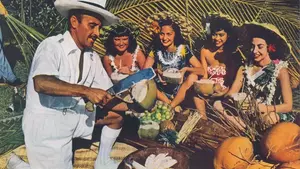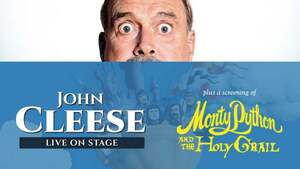Jem Cohen
Tom Minarchick
Jem Cohen is a New York based film/video maker who works in 16mm, Super 8, and video. His work has been a mixture a mixture of documentary, narrative, and experimental genres, coalescing into a unique blend all his own. Though he describes his work as experimental, he also believes that “experimental” work can be accessible and from-the-heart, as well as intellectually challenging.
Though many people’s introduction to Jem’s work will be through Instrument , a film about the band Fugazi, he has been widely respected throughout the independent film industry for years. Aside from his own projects, Cohen has shot and directed five videos for R.E.M., as well as background films for two of their world tours. He has also made pieces for Jonathan Richman, Butthole Surfers, Flat Duo Jets, and Elliot Smith among others. Over the last 15 years, Jem has won dozens of awards for his films within the independent film industry. I recently spoke to Jem about his beginnings as a film maker and how the film Instrument came about.
••
How did you start doing films?
I made my first 16mm film in ‘83, but it was constantly carrying a Super 8 camera that enabled me to become a filmmaker.
Why did you choose the Super 8 format?
I’d turned to Super 8 because it seemed that “real” movie making was out of reach. Just like the music business, the movie business is so bound up in costs, conventions of “entertainment value,” and the endless search for hits, that there isn’t much room for the small operator. Super 8 was like the 7-inch single or the home 4-track of the film world. I felt like a loser at first, but the small format freed me up. Shooting everything around me became a way of life.
Is that how you began getting footage that eventually led to Instrument ?
Yeah. I just began filming crude bits and pieces from [Fugazi’s] inception in 1987.
So at first, you had no intention of making a film about Fugazi.
No, I didn’t set out to make a film about Fugazi. I just documented the band because I document things that are important to me. Eventually this footage began to pile up and slide into a “project.” No one knew exactly what it would be, or quite frankly, what we were getting ourselves into.
When did the idea of shaping it into something come about?
At some point around 1993, we decided to go ahead and call it a film and make it a collaboration between the band and myself.
So they were involved in the editing process?
Yeah. I worked very closely with the band members, and we cut together for weeks and months at a time.
“instrument”
How much access were you given?
I was almost always given full access as long as I was able to stay out of the way and minimize disruption. That usually meant no crew, extra lights, or added sound gear.
Without your own sound gear, did you just take the live sound straight off the soundboard?
Yeah. The live boards were the audio sources for the 16mm synch sound footage.
How was it decided what footage would go in and what wouldn’t?
Just as all of Fugazi’s decisions, it passed through the democratic strainer. There were things that I put in that they didn’t like, or that made them uncomfortable. Some of these scenes I eventually took out or changed, and others I pretty much refused to touch.
Washington, DC, where you grew up, seems to have stayed creative and reinventive over the last 25 years, something that most other scenes haven’t been able to do. Don’t you agree that many people have this misconception that the DC music scene is only comprised of the “Minor Threat sound” or the “Fugazi sound”?
I completely agree. Their are a lot of different types of bands other than the “Dischord/DC sound,” such as the Warmers, Lungfish… People don’t realize that in the late ’70s, there was go-go music, rockabilly, psyche, weird surf. There was just a whole lot of different music that people were open to back then. That, I think, affected the way that people made music.
The inspiration and motivation to make music doesn’t seem to have been driven by what the current trend is, but instead driven by emotion.
I don’t know what to make of the whole new “emo” music thing, it doesn’t really mean a lot to me. It doesn’t seem strange to me that people should try to make music from the heart. People have always done that, Janis Joplin did that.
Another misconception is that the members of Fugazi are these very militant, political, ultra-serious guys. Do you think the film does anything to show that there is a very different side to them other than this?
Yeah. It’s impossible to point a camera at them and not show a different side, because they are anything but. They are some of the least pretentious people I have ever known. They are completely serious about what they do in terms of music, though. They’re just funny people. It’s really bizarre that people have taken them and created this sort of stereotype that Fugazi is like some self-righteous and solemn band. They’re completely hilarious goofballs! I didn’t have to go out of my way to demonstrate that side of them. I just had to be there and turn on the camera and it would be evident. So yes, I feel it does do something to counter that misconception.
What do you think about some of the success other people from those days have achieved, such as Henry Rollins?
Well, I think Henry has taken a different route than Ian, but what I do really like about Henry is that even though he doesn’t always do things I like, he still supports a lot of worthwhile things by putting out people’s books…
And reissuing records.
Yeah, reissuing records. I think that it’s tremendously important. Like I think that anything bad people want to say about Henry is really kid of offset by… Whatever you want to say about him, he is totally, totally committed to music and literature that he thinks is worthwhile and should be available to people. He’s really done a lot of work towards that. You know, I don’t always care for what Henry is doing in terms of the choices he makes about being in certain magazines or being in films that I don’t think are good or whatever, but I really respect his hard work.
I hadn’t even heard the Birthday Party or Gun Club records until he re-released them, and once I did I couldn’t believe that they were ever out of print.
See, I think that’s great. Henry does give back, so I’ve got to give him props for that.
So what’s up next for you?
Well, my partner Pete Sille and I are trying to raise money for a film on a musician from Athens, GA. His name was Benjamin. He was in a band called Smoke and he recently passed on, but we’ve been working for years on this film about him, and we’re trying to get the funds to finish it.
Are any of Smoke’s albums still available?
Yeah, they are available from a small label in Atlanta called Long Play Records, and I think that they’re amazing albums. ◼












